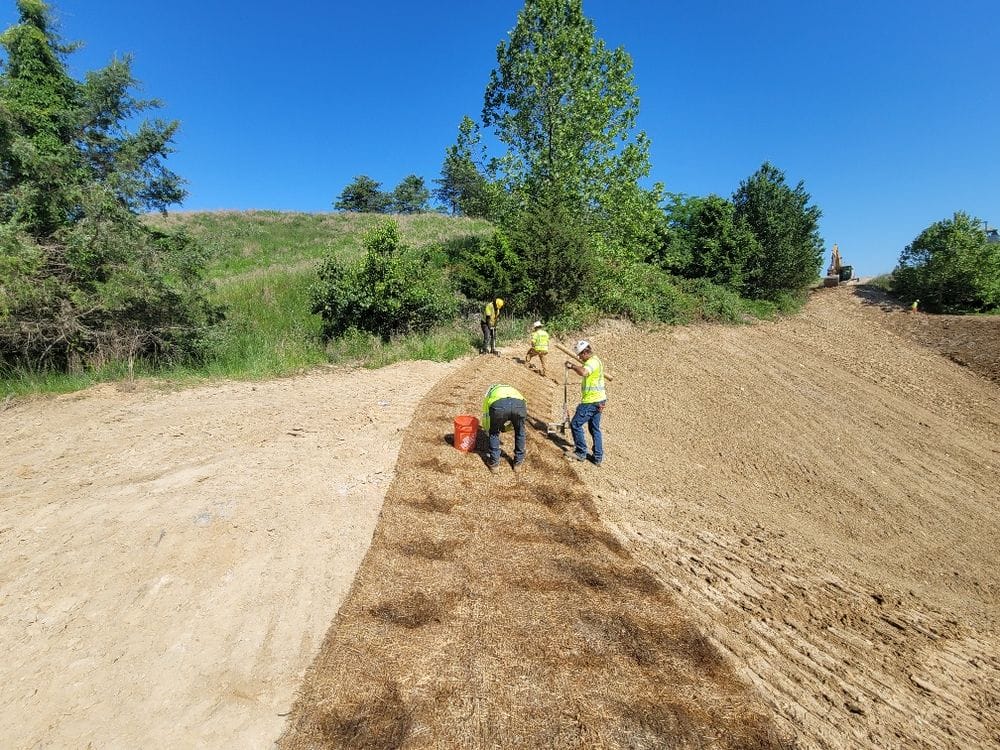Why is Erosion Control Important?
Erosion refers to the process of particles and the likes of soil and rock being displaced from a particular location by elements such as wind and water. Erosion can have an impact on private and public property and even wildlife and also has an effect on pollution, making it very important to be able to control erosion and keep sediments in place.
Why is erosion control important? Erosion control is very important due to excessive chemicals, construction materials and sediment, which along with other pollutants will end up being carried into waterways without the correct controls being taken.
What Is Erosion Control?
Erosion control is a priority in the agriculture, construction and conservation industries as well as in land development applications. The everyday processes involved in these operations can often result in erosion and have a significant adverse impact on surrounding plants, wildlife and communities as a whole. These harms can be minimized by erosion control.
The Importance of Erosion Control
Why is it important to control erosion? The insidious effect that erosion can have on ecosystems and communities can also result in issues for landscaping, agricultural and construction companies, making erosion control important for a number of reasons.
Erosion control measures offer a variety of environmental benefits, helping with the preservation of the integrity of the ecosystem and maintaining biodiversity.
The primary importance of erosion control to construction companies is that it is often a requirement of federal or local regulations for a number of projects and applications. The use of effective products and techniques for erosion control helps companies to stay compliant with these regulations and avoid the possibility of being fined. For example, in Maryland, the stream, rivers and Chesapeake Bay area are considered to be vital economic and natural resources. Thus activities are regulated to make sure that State Waters receive sediment delivery that have been reduced to the most amount possible and there are a variety of erosion and sediment control requirements companies need to adhere to.
Over time land can become unstable due to erosion, bringing water dangerously near to homes, schools and businesses and resulting in the threat of flooding. The use of reliable erosion control methods means that these buildings will remain safe along with their patrons or inhabitants.
There are a number of products and techniques that can help with erosion control.
Silt Fence
Silt fence is a temporary sediment control device that is frequently used on construction sites for the purpose of protecting the quality of the water in nearby lakes, rivers, seas and streams from sediment in the event of stormwater runoff.
The proper design and placement of silt fence is vital, with plenty of digging and excavation being required.
Hydroseeding
Hydroseeding is a planting process that makes use of a mixture of mulch and seed as an alternative way to broadcast or sow dry seed, and is often used for the purpose of erosion control on construction sites.
Temporary Seed & Straw Mulching
Temporary seeding is a soil stabilization practice that involves establishing temporary vegetative cover to cut down on erosion on construction sites that may have disturbed temporarily idle sites. Straw mulching essentially refers to the process of applying straw in an even manner over areas that are newly seeded in order to give temporary erosion control.
Slope stabilization
Slope stabilization applies to all implemented techniques that have the intention of stabilizing slopes that are inadequately stable or downright unstable. Slope stabilization techniques are intended to increase a slope’s safety factor to an adequate level and to mitigate the effects of erosion.
Matting/blanket installation
Erosion blankets and coir mats are used as soil cover to provide a vegetation establishment with a protective barrier. They can be applied on soils that have a high risk of erosion, for the purpose of site rehabilitation or on steep slopes.
Wash racks and Construction Entrances
Construction entrances offer an area allowing mud, sediment, and other pollutants to be removed from the tires of vehicles before entering a public road. Construction entrances need to be used alongside the stabilization of construction roads in order to cut down on the amount of mud and sediment that construction vehicles pick up. These entrances feature a wash rack, which supports them by routinely washing the undercarriage of construction vehicles.
Inlet/Outlet/Outfall Protection
Inlet protection is positioned around an inlet for the purpose of trapping sediment and debris and ensuring it does not enter a water body or storm drain system. Alternatively, it is placed at the outlet in order to cut down on the erosive impact of water at the outfall.
Erosion control helps to protect the environment, ensuring construction projects enhance rather than damage their environments.
Our company has worked all across DC, Maryland, and Virginia and guarantee that we will find the right erosion and sediment control measures for all your projects. Call 703-560-4040 or contact us to receive an estimate on your upcoming project.
Here are some erosion control services we offer:
- Super Silt Fence & Silt Fence
- Hydroseeding
- Temporary Seed & Straw/Mulching
- Slope Stabilization
- Matting/Blanket Installation
- Wash Racks & Construction Entrances
- Inlet/Outlet/Outfall Protection
We have worked in urban, suburban, and rural areas across throughout Maryland, Virginia, and DC, and will the find right solutions for your particular project.
Call 703-560-4040 or email estimating@mullerec.com for an estimate on your next project.

